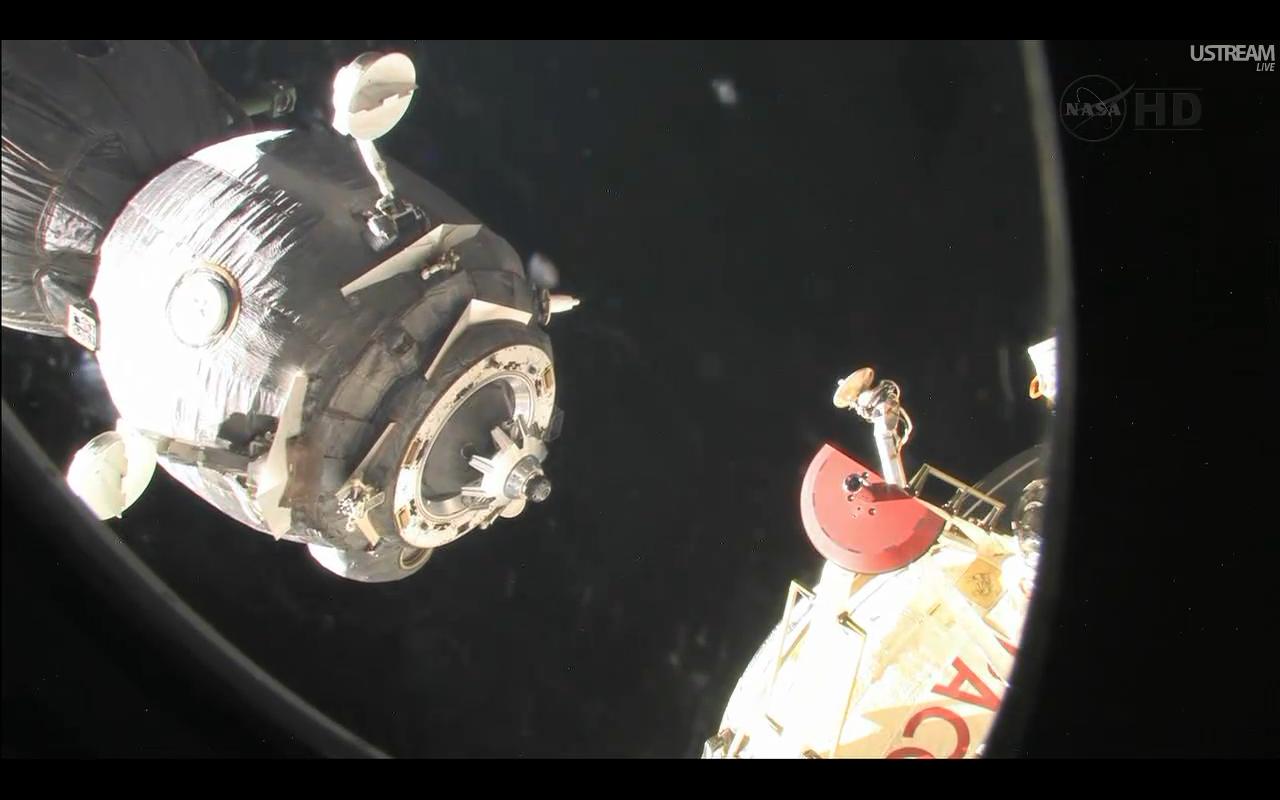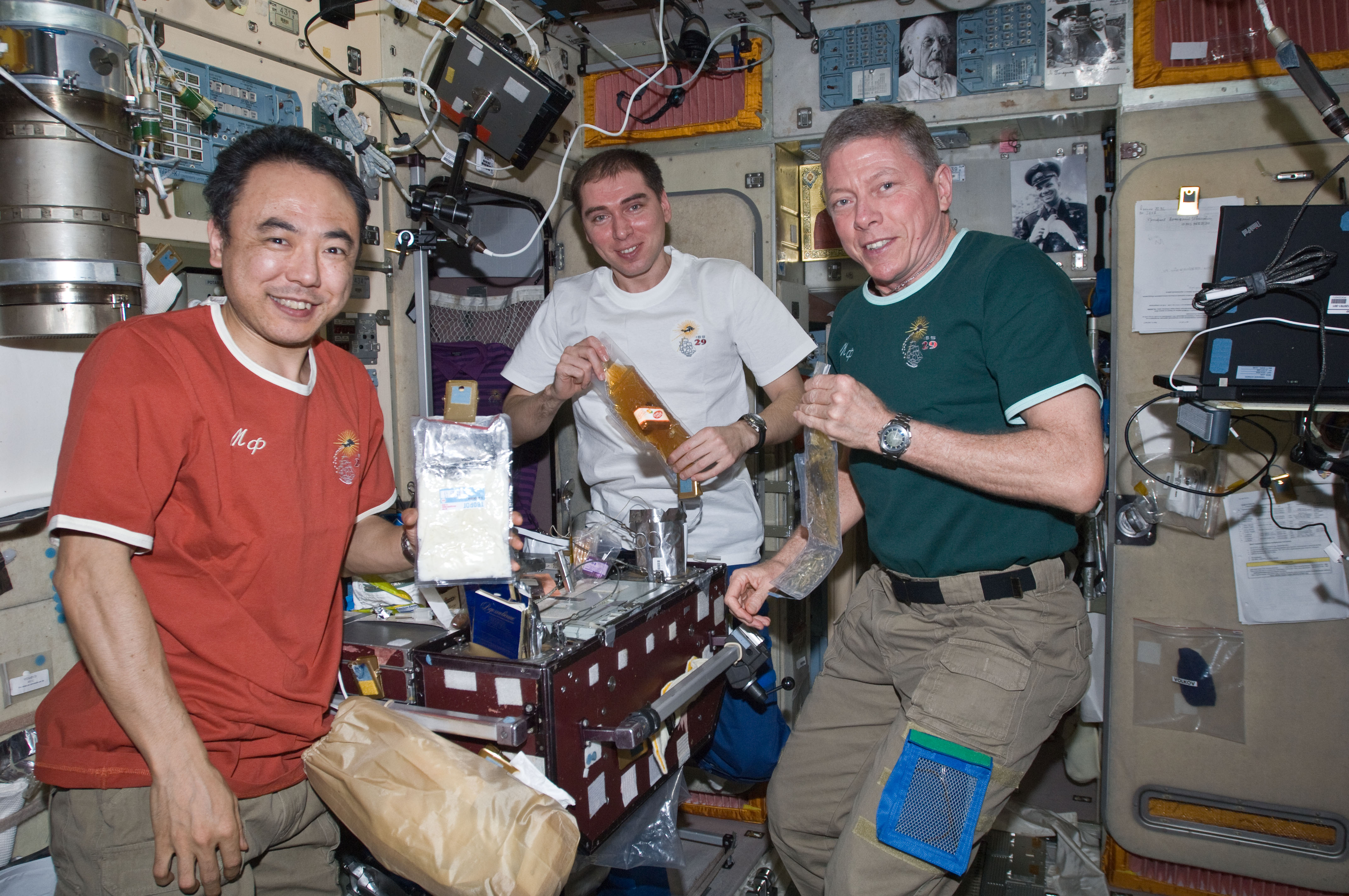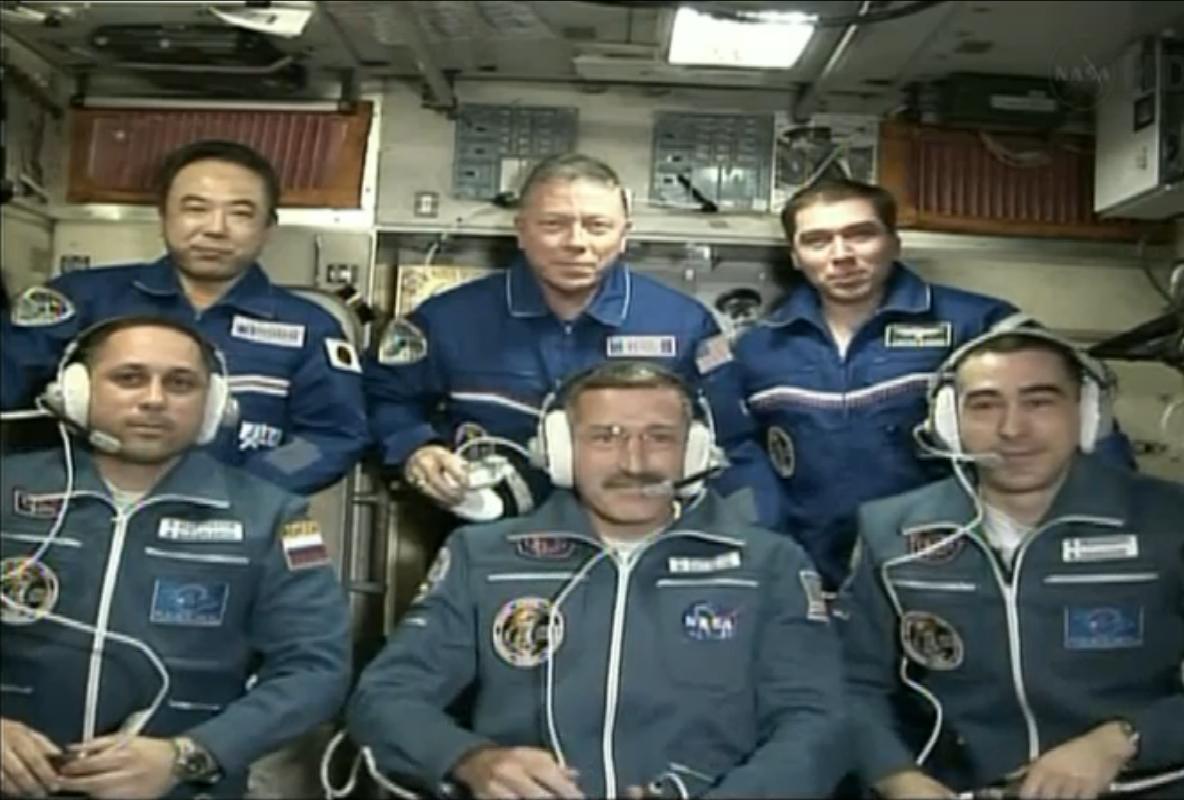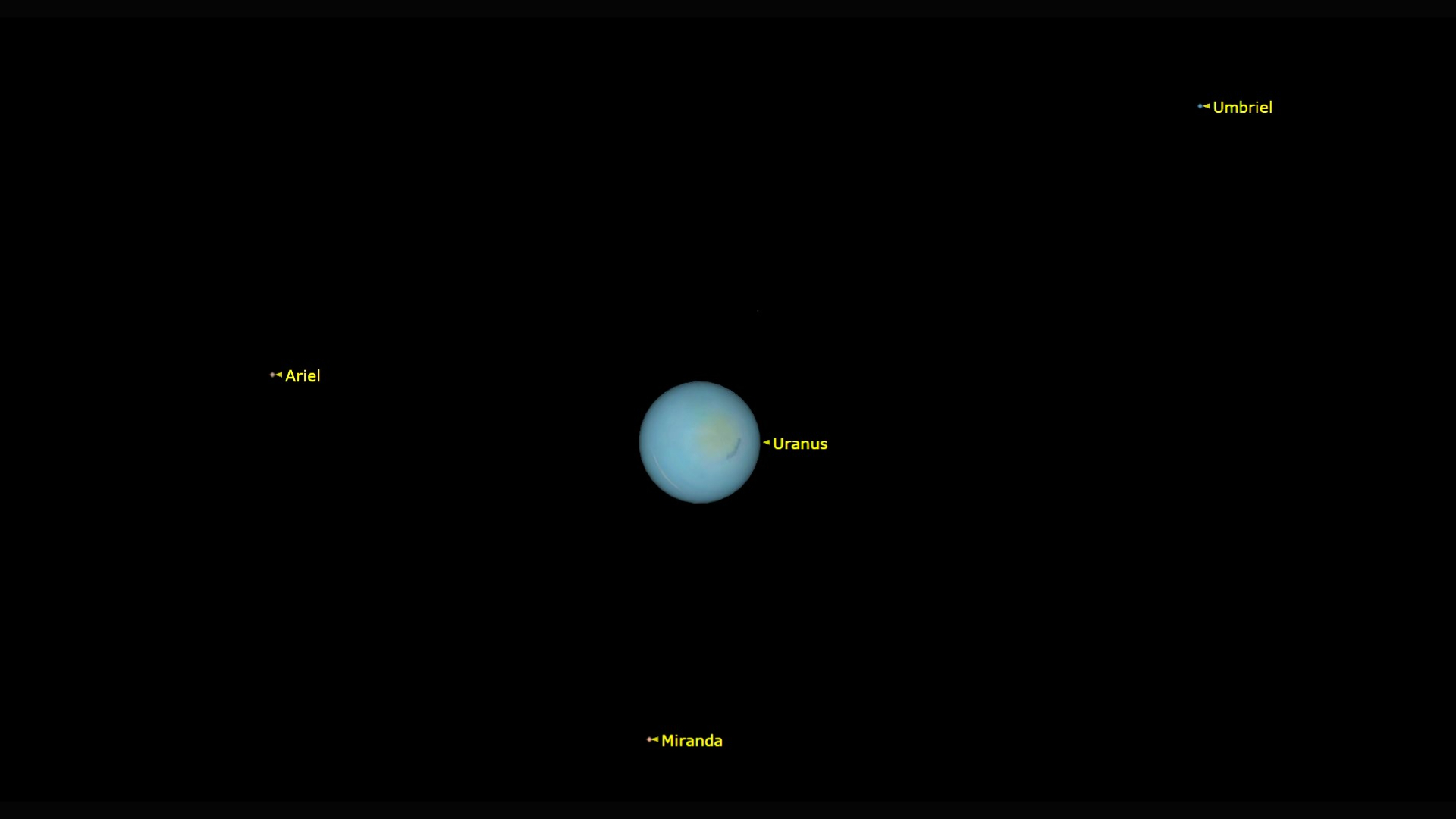3 Space Station Astronauts Land Safely in Kazakhstan
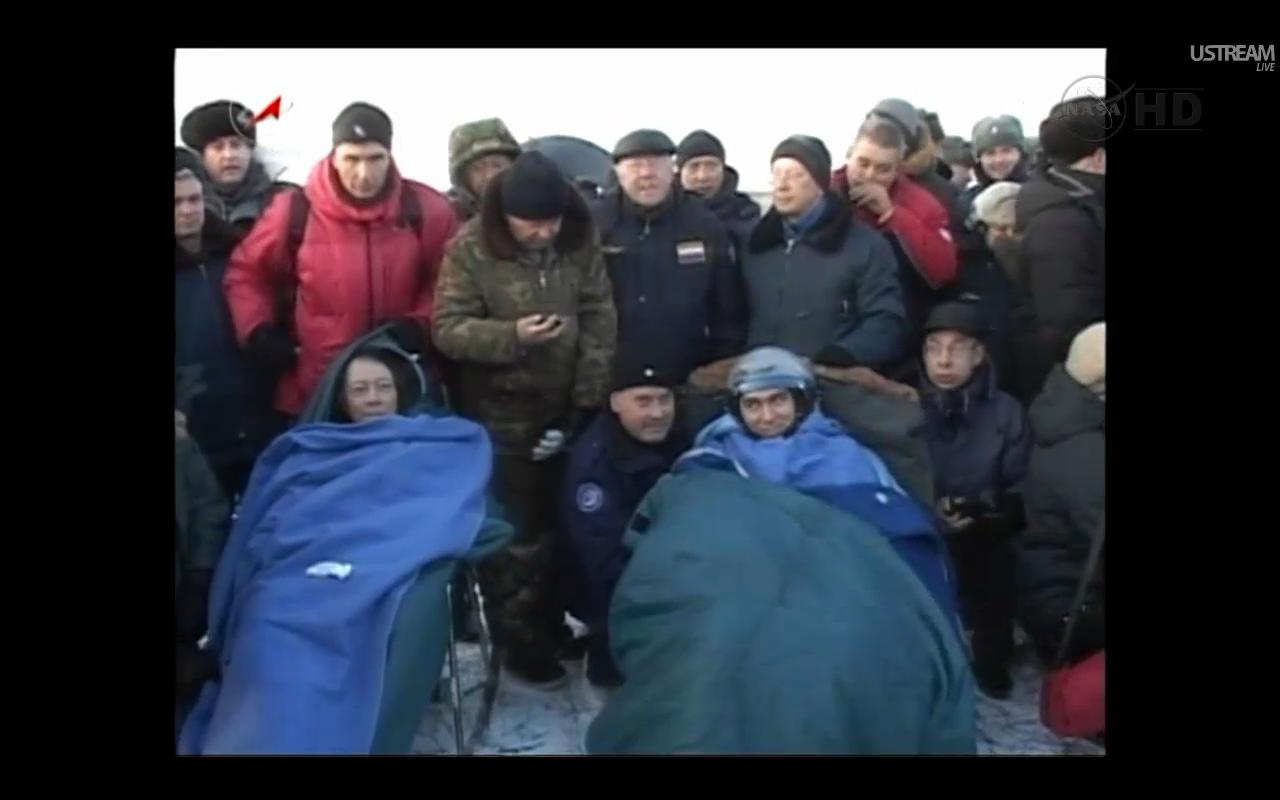
Breaking space news, the latest updates on rocket launches, skywatching events and more!
You are now subscribed
Your newsletter sign-up was successful
Want to add more newsletters?
This story was updated at 10:20 p.m. EST.
After spending nearly six months aboard the International Space Station, three spaceflyers returned home to Earth tonight (Nov. 21).
NASA astronaut Mike Fossum, Japanese astronaut Satoshi Furukawa and Russian cosmonaut Sergei Volkov departed from the space station and landed on the frigid, windy Central Asian steppes of Kazakhstan at 9:26 p.m. EST tonight (0226 GMT on Tuesday, Nov. 22).
After months in orbit, the crew's homecoming featured wintery conditions, with harsh winds, below-freezing temperatures, and a layer of snowcover at the landing site in Kazakhstan. When it touched down, the Soyuz capsule landed on its side, which is not uncommon in windy conditions, NASA officials said, but otherwise, it was a smooth and successful landing.
Shortly after landing, recovery crews quickly removed the crewmembers from the Soyuz capsule. The spaceflyers were all smiles as they were carried from their spacecraft into reclining chairs to re-adjust to Earth's gravity. After posing for some photos, Fossum, Furukawa and Volkov were whisked away for initial medical tests.
Fossum, Furukawa and Volkov undocked from the orbiting complex in their Russian-built Soyuz TMA-02M spacecraft from the Rassvet module on the station's Russian segment earlier this evening. The two spacecraft physically separated from one another at about 6:00 p.m. EST (2300 GMT), as they flew over the Chinese-Mongolian border.
Fossum, Furukawa and Volkov arrived at the orbiting outpost in early June. In an in-flight media interview last week, Fossum described how quickly the time passed for him in space.
Breaking space news, the latest updates on rocket launches, skywatching events and more!
"The time has gone by in a flash," Fossum said. "The calendar says five-and-a-half months. To me, it seems more like five-and-a-half weeks. If you ask my wife, it's probably more like five-and-a-half years."
Fossum is a veteran of two previous space shuttle flights, but this was his first long-duration mission aboard the International Space Station. [Mission Photos: Expedition 29 to the International Space Station]
"I've dreamed about living and working on a space station since I was a kid, so this is a dream come true for me," Fossum said last week. "This has been great. I'd be more than happy to stay here a bit longer."
Over the course of three spaceflights, Fossum has now logged 194 days in space, Volkov, who has completed two long-duration stints aboard the space station has spent 366 days in orbit, and Furukawa, who completed his first spaceflight, logged 167 days in space.
Fossum was commander of the space station's Expedition 29 mission. Before returning home, he passed the post on to NASA astronaut Dan Burbank, who will act as commander of the new Expedition 30 for the duration of his stay.
"It was very poignant and very rewarding to watch our friends and colleagues, and teachers these last couple of days, get on their way to their families and home," Burbank radioed to Mission Control at NASA's Johnson Space Center in Houston earlier this evening. "I guess we'll have to wait a couple of months before we have the chance to see them again."
Burbank arrived at the station on Nov. 16 with Russian cosmonauts Anton Shkaplerov and Anatoly Ivanishin. The trio will live and work aboard the orbiting laboratory until March.
Last week, Fossum gave Burbank some advice for his time in orbit.
"My advice for Dan is, enjoy every bit of every day," Fossum said. "Any time you think that you're getting a little bit frustrated, get a grip, because you're in the most amazing place imaginable, working in the world's premier laboratory in orbit 240 miles above the Earth. This is an amazing place. What a great experience it is — every bit of it."
Fossum, Furukawa and Volkov are the last space station crewmembers to have been present at the station during a visiting space shuttle mission. The spaceflyers played host to the crew of NASA's space shuttle Atlantis during its STS-135 mission — the last-ever flight of the space shuttle fleet. The agency retired its 30-year shuttle program immediately following Atlantis' STS-135 mission in July.
"Expedition 29 has been a very interesting time," Fossum said in a ceremony on Sunday (Nov. 20) to hand command of the station to Burbank. "We were here to be part of the historic, last space shuttle mission. It was then our task to transition from a focus on assembly operations to full scientific utilization."
During their time in orbit, Fossum, Furukawa and Volkov conducted a variety of scientific experiments and Earth observation. Fossum also conducted a spacewalk in July during the shuttle Atlantis' visit.
In the change-of-command ceremony, Fossum also thanked the ground teams and mission planners for their support.
"We are the fortunate ones living in space, with the great view," he said. "In truth, we merely serve as the hands and eyes of a huge team with the real brains, passion, persistence and patience. We did work hard, but our success is really a tribute to the mission teams on the ground who developed the plans to make it all happen."
You can follow SPACE.com staff writer Denise Chow on Twitter @denisechow. Follow SPACE.com for the latest in space science and exploration news on Twitter @Spacedotcom and on Facebook.

Denise Chow is a former Space.com staff writer who then worked as assistant managing editor at Live Science before moving to NBC News as a science reporter, where she focuses on general science and climate change. She spent two years with Space.com, writing about rocket launches and covering NASA's final three space shuttle missions, before joining the Live Science team in 2013. A Canadian transplant, Denise has a bachelor's degree from the University of Toronto, and a master's degree in journalism from New York University. At NBC News, Denise covers general science and climate change.
